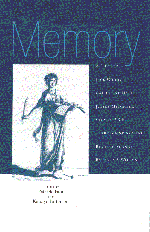Book contents
- Frontmatter
- Contents
- Introduction
- 1 Disturbing Memories
- 2 ‘Turning a Blind Eye’: Memories of Empire
- 3 Memory and the Making of Fiction
- 4 Memory in Oral Tradition
- 5 Memory and Psychoanalysis
- 6 When Memory Fails
- 7 How Brains Make Memories
- 8 Memory and Neural Networks
- Notes on Contributors
- Acknowledgements
- Index
6 - When Memory Fails
Published online by Cambridge University Press: 05 June 2012
- Frontmatter
- Contents
- Introduction
- 1 Disturbing Memories
- 2 ‘Turning a Blind Eye’: Memories of Empire
- 3 Memory and the Making of Fiction
- 4 Memory in Oral Tradition
- 5 Memory and Psychoanalysis
- 6 When Memory Fails
- 7 How Brains Make Memories
- 8 Memory and Neural Networks
- Notes on Contributors
- Acknowledgements
- Index
Summary
Although all of us experience memory failures at some time or another, these slips of memory do not cause severe disruptions to our daily lives. Most of us can still function adequately at work, engage in conversation, and remember the gist of the programme we saw on television last night, while accepting as normal the forgetting of certain details. After all, nobody remembers everything. For some people, however, their memory failure is of such a proportion that the effects can be devastating.
Imagine waking up and not being able to remember what you did yesterday. Imagine living in a time vacuum where there is no past to anchor the present and no future to anticipate. Such is the fate of many people suffering from organic amnesia. Although amnesia means literally ‘an absence of memory’, in practice people with organic amnesia do not have a total loss of memory. They remember who they are, they remember how to talk, and how to read, and they usually remember how to do things they learned before the onset of their memory loss, such as how to swim, ride a bike or play the piano. Unfortunately, they have great difficulty in learning new skills or information, experience problems when trying to remember ongoing events, and usually have a memory gap for the few days, weeks, months or even years before becoming ill.
In contrast, people with functional amnesia following, say, an emotional trauma, sometimes seem to lose memory for personal identity.
- Type
- Chapter
- Information
- Memory , pp. 113 - 133Publisher: Cambridge University PressPrint publication year: 1998



